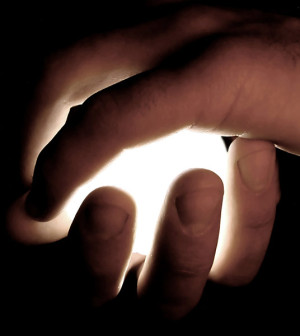- Double Mastectomy May Offer No Survival Benefit to Women With Breast Cancer
- Toxic Lead Found in Cinnamon Product, FDA Says
- Certain Abbott Blood Sugar Monitors May Give Incorrect Readings
- Athletes Can Expect High Ozone, Pollen Counts for Paris Olympics
- Fake Oxycontin Pills Widespread and Potentially Deadly: Report
- Shingles Vaccine Could Lower Dementia Risk
- Your Odds for Accidental Gun Death Rise Greatly in Certain States
- Kids From Poorer Families Less Likely to Survive Cancer
- Tough Workouts Won’t Trigger Cardiac Arrest in Folks With Long QT Syndrome
- At-Home Colon Cancer Test Can Save Lives
With Insomnia, Mind May Also Wander During Day


THURSDAY, Sept. 5People with insomnia have trouble concentrating during the day because the “wandering mind” areas of their brains may not be turned off, according to a new study.
Using brain imaging technology, researchers found that people with insomnia who were performing a working memory task did not rely less on the “default mode” regions of their brain that are usually active only when the mind is wandering.
The findings might help explain why insomniacs do not function as efficiently during the day, and could also lead to improved treatments for the sleep disorder, according to the authors of the study published in the September issue of the journal Sleep.
“We found that insomnia subjects did not properly turn on brain regions critical to a working memory task and did not turn off ‘mind-wandering’ brain regions irrelevant to the task,” study lead author Sean Drummond said in a journal news release. “Based on these results, it is not surprising that someone with insomnia would feel like they are working harder to do the same job as a healthy sleeper.”
Drummond is an associate professor in the department of psychiatry at the University of California, San Diego, and the VA San Diego Healthcare System, as well as the secretary/treasurer of the Sleep Research Society.
His study compared 25 people with primary insomnia — difficulty falling asleep or staying asleep that’s not related to another health condition — to 25 people who did not have any trouble sleeping. The participants, whose average age was 32, underwent a functional MRI scan as they performed a task of their working memory.
The MRI scans revealed that people with insomnia could not adjust the activity in parts of their brain usually used to perform such tasks.
The study found that as the task got more difficult, the good sleepers relied more heavily on the parts of the brain involved in working memory, such as the dorsolateral prefrontal cortex. Meanwhile, the participants with insomnia did not use more resources from these parts of the brain.
“The data help us understand that people with insomnia not only have trouble sleeping at night, but their brains are not functioning as efficiently during the day,” Drummond said. “Some aspects of insomnia are as much of a daytime problem as a nighttime problem. These daytime problems are associated with organic, measurable abnormalities of brain activity, giving us a biological marker for treatment success.”
Roughly 10 percent to 15 percent of adults have an insomnia disorder with distress or daytime impairment, according to the American Academy of Sleep Medicine.
More information
The National Sleep Foundation has more about insomnia.
Source: HealthDay
Copyright © 2024 HealthDay. All rights reserved.










